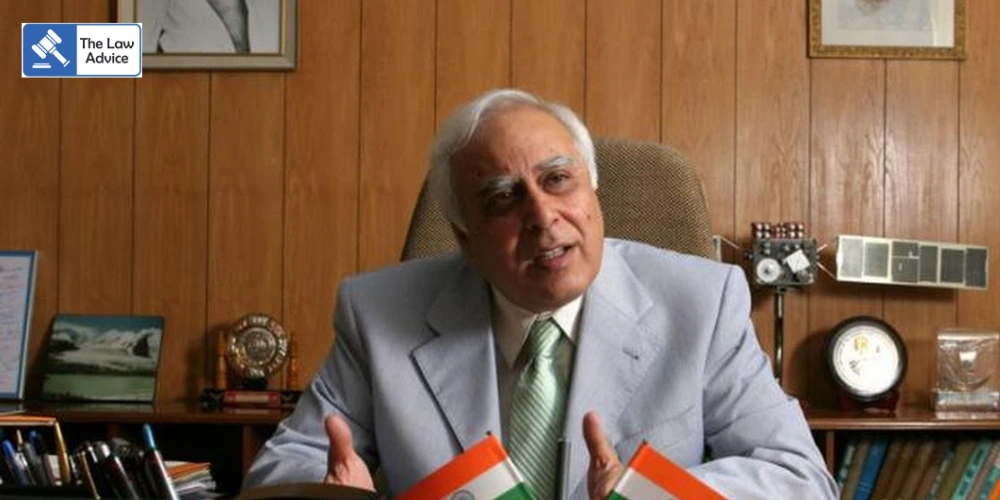
Senior Advocate and Rajya Sabha MP Kapil Sibal has launched a strong critique of the judiciary following the Delhi High Court’s refusal to grant bail to former JNU scholar Umar Khalid and other accused in the Delhi Riots larger conspiracy case. Addressing a press conference, Sibal argued that the prolonged denial of bail amounts to a violation of Article 21 of the Constitution, which guarantees the right to life and personal liberty.
“If the court does not decide for years, who is to be blamed? If you don’t want to grant bail, dismiss it outright. But holding 20–30 hearings over years and still not deciding—this is injustice, this is a violation of Article 21,” Sibal remarked, calling attention to the erosion of judicial responsibility.
He stressed that while nobody supports threats to India’s integrity, innocent citizens cannot be made scapegoats. “We will always stand with the nation against those who threaten it. But equally, we must stand with innocents whose liberty is curtailed without trial,” he added.
Sibal confirmed that Khalid and others would be approaching the Supreme Court against the Delhi High Court order, expressing confidence that the matter will be heard. At the same time, he questioned the recusal of judges without explanation. “Judges must give reasons for recusal. A person approaching the Court for relief has the right to know why a judge won’t hear the matter. Silence breeds suspicion,” he said.
He also took issue with inconsistency in judicial precedents under the Unlawful Activities (Prevention) Act (UAPA). “The Supreme Court itself has granted bail in multiple UAPA cases—Athar Parwez, Shoma Kanti Sen, Jahir Haq, KA Najeeb—where accused spent years in jail. But when it comes to Khalid, the Court violates its own decisions. How is this justice?” Sibal asked.
Highlighting what he described as systemic delays, Sibal noted that Khalid’s first appeal before the High Court dragged on for 28 hearings over 180 days. When denied relief, Khalid approached the Supreme Court, where his case remained pending for 272 days before being withdrawn after Justice Prashant Kumar Mishra’s recusal.
His second appeal before the High Court fared no better—heard for 407 days by a Division Bench, with orders reserved on 9 July 2025 but never pronounced. Eventually, another Bench refused to hear the case altogether.
“The High Court blamed the accused’s lawyers for delays, alleging seven adjournments. But we only sought adjournment twice—once due to health issues, and once because I was appearing before a Constitution Bench in the Article 370 matter,” Sibal clarified.
On the merits of the case, Sibal stressed that Khalid was not even in Delhi at the time of the riots, as the speech cited against him was delivered in Mumbai. “There is no direct evidence linking him to the riots, yet he has spent five years in jail without bail,” he said.
He pointed out that while the alleged offenses carry severe punishments, including the death penalty, the prosecution has withheld riot videos from the Court, despite repeated requests by the defense. “If this case actually goes to trial, I can confidently say they will all be acquitted. This so-called conspiracy will collapse,” Sibal declared.
Sibal also criticized reliance on protected witnesses’ statements, which remain inaccessible to the accused. “How can anyone defend themselves when crucial witness statements are hidden? A chargesheet is merely an agency’s opinion—not proof. If we treat it as proof, no one will ever get bail,” he warned.
Silence of Political Class & Erosion of Public Accountability
The senior counsel also turned his ire toward politicians, lawyers, and civil society, accusing them of collective silence. “Fifty-three people died in the riots, two-thirds from one community. But were proceedings initiated against politicians who gave inflammatory speeches? No. In fact, a judge who asked why such leaders weren’t prosecuted was transferred. This is the state of our judiciary and government,” he lamented.
He further accused political parties of failing to raise the issue. “A public wrong is happening before our eyes. Yet our lawyers, middle-class, and society remain quiet. Where does one go when institutions themselves turn their back on justice?” Sibal asked.
Website designed, developed and maintained by webexy